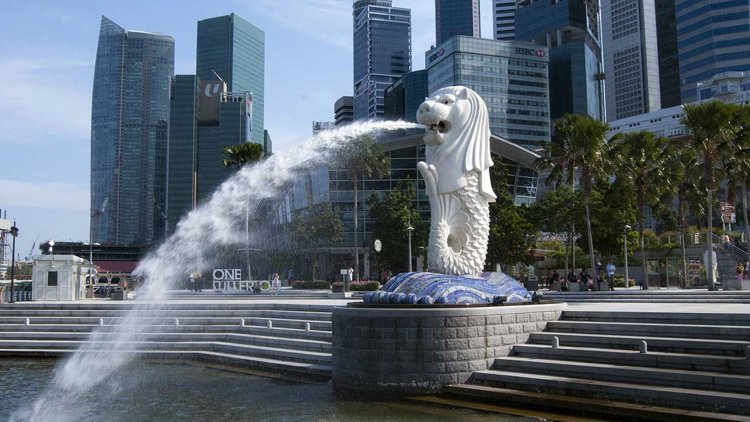India Is Expected To Play A Bigger Part In Developing Regional Architecture For Asian Cooperation, According To Singapore
According to Wong, who is in India for five days, there is widespread understanding that a substantial portion of India's interests lay to the east of India.

According to Deputy Prime Minister Lawrence Wong, Singapore has always seen India as a strategically significant partner and expects it to play a bigger part in the developing regional framework for Asian cooperation.
Wong also pointed out that since the early 1990s, when India first launched its Look East policy, which Prime Minister Narendra Modi later called the Act East policy, India has expanded and reinforced its cooperation with neighbouring nations on a number of fronts.
According to Wong, who is in India for five days, there is widespread understanding that a substantial portion of India's interests lay to the east of India.
Therefore, we appreciate India's involvement in the larger area. Speaking to Singaporean journalists on Tuesday, Wong was quoted by Channel News Asia as saying, "We envisage India playing a larger role in this growing regional architecture for Asian cooperation.
According to some projections, India's economy could surpass China and the US in size by 2030, and this could result in India playing a bigger role in regional and global events, according to Wong.
According to him, Singapore has always viewed India as a strategically significant partner, which is why we have maintained tight relationships throughout the years. Our relationship is based on strong mutual trust.
"We hope to see India be engaged in ASEAN (Association of Southeast Asian Nations) in a more constructive and systematic manner and we look forward to India becoming an important player in this evolving regional architecture," he said. The country coordinator for ASEAN-India relations will serve from 2021 to 2024.
Wong visited India and met with Prime Minister Modi and other top Indian officials in addition to taking part in the first India-Singapore Ministerial Roundtable there.
Wong added that during the ministerial visit to New Delhi, Singapore and India decided to collaborate in a number of new sectors, including green technology, digital connectivity, and the security of food and energy.
Additionally, he thinks that the first India-Singapore Ministerial Roundtable can act as a venue for ongoing discussions and the coordination of new areas of cooperation.
The COVID-19 pandemic has delayed many of these initiatives for the past two and a half years, according to Wong, who is also Singapore's Finance Minister. However, Wong noted that Singapore has been in discussions with India about how to improve the two nations' ties.
The Channel quoted Wong as adding, "I was really glad this time to be able to be here to launch the roundtable and to meet with my counterparts." In addition to agreeing on several new areas of collaboration, he continued, we had frank and extensive discussions about a variety of topics, including food and energy security, green technologies, notably green hydrogen, digital connection, and skill development.
Singapore and India both have qualities that complement one another, according to Wong. He used the example of financial technology (fintech) to illustrate how India has a lot of promise given its efforts in digitalization and rapid expansion in the startup sector.
Singapore's fintech environment has also been expanding. Singapore may have a much smaller market, but because of its function as a financial hub, the nation services the greater area, according to Wong.
The new agreement that the Monetary Authority of Singapore and India's International Financial Services Centres Authority signed over the weekend opens up opportunities for both parties to work together in the fintech sector.
According to him, (fintech companies) can scale their solutions in both Singapore and Gift City (Gujarat International Finance Tec-City) by using a regulatory sandbox to experiment, test, and innovate. Wong also hoped that the high-level ministerial roundtable, which was hosted as part of his visit for the first time, would become an annual event in the future.
Although he emphasised that the meeting will take on a flexible framework that can adapt to changing requirements and expectations, he continued, we want the ministerial roundtable to be a standing arrangement for ministers on both sides to meet on a regular basis.
For instance, the Minister of Foreign Affairs Vivian Balakrishnan, the Minister of Trade and Industry Gan Kim Yong, and the Minister of Transport and Minister-in-charge of Trade Relations S Iswaran all attended the roundtable with the Deputy Prime Minister.
The Singapore ministers met with their Indian counterparts in the fields of commerce and industry, international affairs, and finance. However, Wong noted that future sessions may involve additional ministers depending on the topics covered. This time, business executives from both nations joined the ministers.




 admin
admin 




















